The deadly brew of pro-Palestinian violence, Donald Trump and social media
Trust in institutions and each other is declining into a profound societal crisis. Can liberal societies thrive or even survive in an environment marked by corrosive, febrile, wide-ranging distrust?
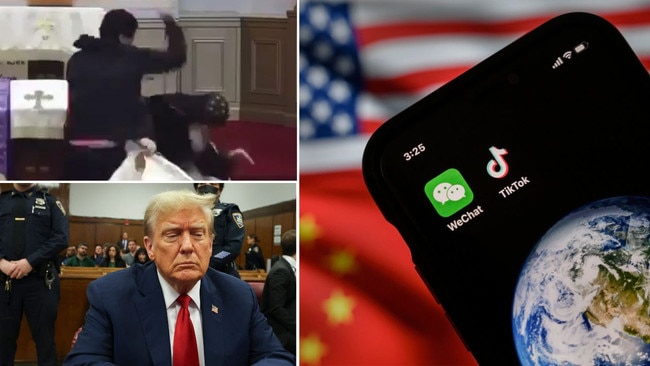
Our institutions have lost credibility, sometimes justifiably, often unjustifiably. People no longer have serious faith in institutions, from the church to courts, parliament, media, education. There’s a pervasive odour of ideological polarisation and confrontation, an almost absolute lack of trust. The public air is rent with the sulphur of disdain.
Here’s the central question: can liberal democratic societies such as ours survive such a radically low trust environment?
Half of America doesn’t trust Trump in any way and regards the prospect of a future Trump presidency as a mortal threat to democracy. The other half doesn’t trust the courts to act fairly. They regard the weaponsiation of justice by the Democratic Party as a bigger threat than Trump. They resent an unelected establishment with a political agenda that will frustrate them no matter how they vote.
Most Australians want to have the quasi-pornographic violence of the alleged terrorist knife attack on the Assyrian bishop in southwest Sydney removed from the net. Yet many don’t trust the government to regulate the internet. They don’t trust social media companies and they don’t trust government to regulate social media companies.
Bizarrely, it seems Australian law could notionally give Australian authorities the right to impose limitations on the net across the entire world. That’s ridiculous. Can every national government have such power? What about governments whose bans are blatantly political?
Most Australians probably agree with ASIO boss Mike Burgess that law enforcement, especially counter-terrorism agencies, should access private criminal messages even if they’re encrypted. But citizens don’t want government agencies with the power to snoop on their own encrypted messages.

But if we don’t trust our own institutions, why are we so indifferent to foreign governments’ activities on our social media? The US just passed a law requiring TikTok to sever its connection with its Chinese owner, ByteDance. China’s 2017 National Intelligence Law requires every Chinese company to co-operate fully, if necessary secretly, with the Chinese government in intelligence matters.
Last year, opposition homeland affairs spokesman James Paterson led a select committee on foreign interference through social media. The report listed four threats posed by foreign governments active on our social media:
One: Gathering intelligence on individuals.
Two: Gathering behavioural data on large groups, or cohorts.
Three: Harassing and intimidating diaspora communities.
Four: Undermining social trust through disinformation.
This last is most important. In the first quarter of 2023, YouTube terminated 18,000 channels linked to China and 900 linked to Russia.
Take some real-world examples not mentioned in any report. From the earliest days of the Black Lives Matter movement, Russia was extremely active magnifying the movement online. The divisions within the US, and in other Western societies such as Australia with derivative leftist movements, served Moscow’s strategic interests.
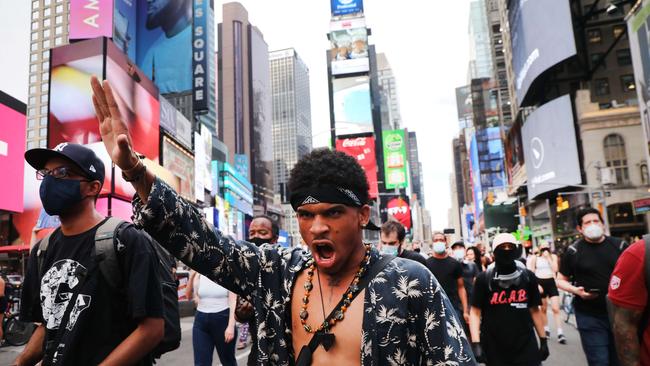
As soon as an Australian government announces the location of an east coast nuclear submarine base, Chinese agencies will get very busy with anonymous social media campaigns against the site.
Take it back to TikTok. Most Australians don’t want Beijing or Moscow interfering in our political debates. But if TikTok refuses to sever its connection from ByteDance it just may withdraw from the US (not likely but possible).
Would Australia enact similar legislation? Already Australian government employees are not allowed to download the TikTok app on government devices. But if Canberra took action and TikTok disappeared from Australia, what would the popular reaction be?
Australians may in theory not trust social media companies such as TikTok. But would they trust their own government sufficiently to put up with the mild inconvenience of losing TikTok?
Hmmm.
ASIO boss Burgess argues that AI greatly magnifies the dangers of social media. Home Affairs Minister Clare O’Neil boldly declares of social media companies: “They are creating civil division, social unrest. Just about every problem that we have as a country is either being exacerbated or caused by social media, and we’re not seeing a skerrick of responsibility taken by these companies.”
The AI danger is undeniable. A few years ago I visited a university in Istanbul. Its student body was running a massive anti-Israel installation/presentation. A lot of exhibits were captioned in English. One contained the statement that Israeli tank commanders in Palestinian territories routinely strapped Palestinian children to the front of their tanks as human shields.
There’s not a speck of truth in this. With AI technology it would be easy to create such realistic images that would be explosively powerful emotionally, a dangerous accelerant in radicalisation.
With all the problems of credibility, relevance and performance that much traditional media have brought on their own heads, they are still infinitely more reliable than anything on social media. But partly because the algorithms of social media deliver material that reinforces whatever prejudices you already have, confirmation bias leads people to give greater credibility to things they see on social media than to traditional media, or even to the reality before their eyes.
The great challenge, Peter Dutton argues, is to bring social media under the rule of law, as traditional media outlets are. But the Albanese government seems to be making two grave mistakes.
The first is to think Australia can rule the global internet. Elon Musk takes a very pro-free speech attitude to X, excessively so. But it’s good to err a bit in that direction.
Australian law has a perfect right to determine some things cannot be published within Australia. So if X geo-blocks Australian users from accessing banned material it would seem on the basis of common sense if not the letter of the law that it has acted reasonably.
For Australian law to prevent the material being published in, say, the US is inherently ridiculous. But if it’s published in the US then any Australian can construct a virtual private network, pretend to be American and access the material. That’s just bad luck. It’s as though when Australian censors banned the publication of Lady Chatterley’s Lover, they couldn’t have claimed to ban it in the UK as well because Australians could purchase it by mail order from Britain.
The other mistake is deliberately conflating the reasonable ruling to take down terrorist violence with the political censorship the Albanese government envisaged with its Misinformation and Disinformation Bill.
There was such reaction to this anti-democratic measure the government withdrew it last year but now plans a revived version. That would be appalling for democracy. The right to free speech is always limited, by libel, incitement to violence and other matters. The challenge is to bring social media under the rule of the normal law that already exists and applies to everyone else.
The challenge is not to create a government arbiter of truth that can enforce conformity on everybody. Through the voice debate I argued it was a racially divisive proposal that would result in a racist institution. The government claimed this was factually wrong. Misinformation laws would prevent such normal debate.
Facebook decided the claim that Covid originated in a Chinese laboratory was misinformation and therefore should be taken down. The lab theory, which at the time I thought mistaken, is now nearly accepted wisdom. Similarly, Facebook wouldn’t allow the story of the laptop belonging to Hunter Biden, Joe Biden’s son, to run because it allegedly was Russian disinformation. It turned out to be completely true.
There’s a big problem of social media publishing foreign interference material, and harmful exploitative material, but also a problem of censoring stuff that contradicts the prejudices of the day (now woke).

But social media in effect is becoming the public square. It needs to be, in some way, neutral, fair to all citizens. At the moment, social media companies decide their own policies, which give them enormous political and cultural power. It’s exceptionally difficult for national governments to regulate, however, because it operates across so many jurisdictions. Many of its companies are headquartered in the US, which prizes freedom. Some big social media companies, such as TikTok and WeChat, originate in China, which pays little attention to anybody else’s regulatory views.
Citizens are left in a mess, with no faith in the integrity and neutrality of social media companies, and no faith in governments that attempt to regulate them.
Paterson argues one constructive path would be to insist on the greatest possible transparency in the publication and suppression policies of each social media company. They should say what they will allow and why, what they won’t allow and why, and who within each company makes these decisions.
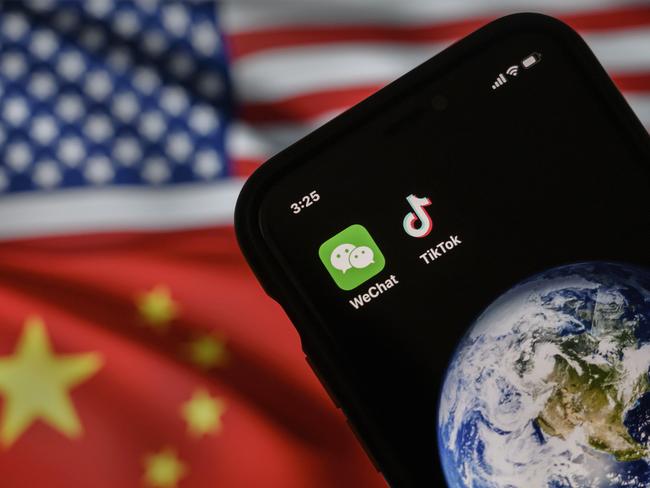
But the loss of faith in institutions is spreading much further. This is because some institutions are failing but also because there is this relentless spirit of universal distrust and mutual suspicion.
Take the Anzac Day we’ve just had. It’s the last national day, the last national symbol, Australians are allowed, even encouraged, to venerate. This year it was attacked by pro-Palestinian activists who argued the original Anzacs were war criminals. There was also criticism from some Aboriginal groups that wanted frontier wars to get as much attention as the Anzacs. The attack on Anzac Day was immediately rejected by both sides of politics. But only a few years ago similar attacks on Australia Day were similarly rejected.
Once our national symbols were themselves nationally unifying, paid respect and in a sense neutral. Now the left’s ideology has moved from righting specific wrongs to condemning every aspect of societies such as Australia as rooted in evil, racism, colonialism, sexism and all the rest. This undermines a host of national institutions, as it’s meant to.
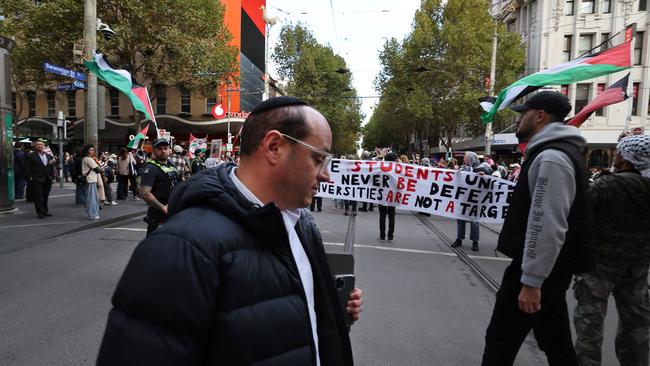
One of the worst developments is the political weaponisation of civil and criminal law, and the judicialisation of politics.
America is witnessing a grotesque parody of law in the prosecutions brought against Trump. I have a thousand problems with Trump and am never shy to criticise him. But the point of the law is that it’s politically neutral. It should treat creeps as well as it treats nice folks.
Trump was absurdly fined hundreds of millions of dollars for overstating the value of his properties to obtain loans that he fully repaid, about which lenders never complained. He’s now facing criminal prosecutions from four Democrat prosecutors in four different jurisdictions in cases that are a ludicrous abuse of process and politicisation of law.
He is currently in a felony prosecution over the Stormy Daniels hush money scandal. Trump’s lawyer in 2017 paid Daniels $US130,000 to keep quiet about an alleged sexual encounter with Trump. Now Trump is on trial (and effectively tied to a New York courtroom for six weeks) brought by a New York prosecutor, for recording this transaction as a legal fee instead of a campaign expense. Trump frequently behaves contemptuously towards the law and towards institutions. The Democrats have demonstrated their own matching contempt for the law and for institutions. The Daniels matter was reviewed by the federal Attorney-General, a Democrat, who decided it didn’t merit prosecution. State officials are meant in such matters to follow federal officials.
Such a misdemeanour as Trump is accused of is prosecutable as a felony only if done in the process of committing another crime. The prosecutors allege Trump’s “other crime” was to win the presidential election by means of deception. This is almost beyond parody. As an assault on process, it’s a gravely damaging development in modern Western politics.
The Democrats who have launched these multiple prosecutions of Trump seemed to have two ideas. The first was that by prosecuting Trump they could make him again the centre of attention among Republicans and thus ensure he was the Republican presidential candidate.
And the second was that the prosecutions would have enough damaging effect to peel off sufficient independent voters, and even Republicans who dislike Trump’s personality, to hand the election to Biden.
As the Daniels trial has begun Trump has indeed suffered a decline in the polls, in several of which Biden now leads. So the Democrats may succeed in weaponising the law to devastating effect. This will permanently disfigure American politics. It will be the shape of things to come. It’s likely that every future president whose party is in the minority in congress will be impeached.
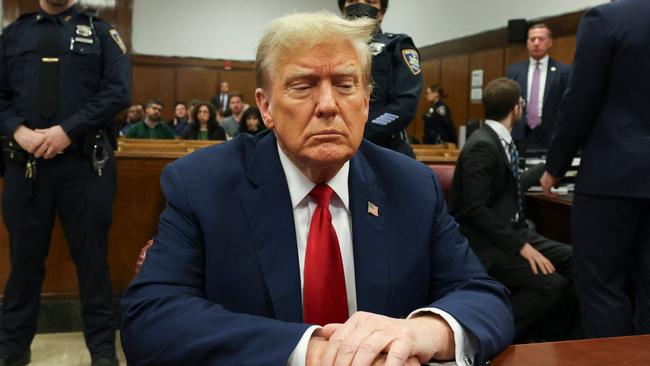
But this is happening all over the West. Cardinal George Pell was as unlike Trump as it’s possible for a human being to be. He was completely innocent of the foul crimes of which he was accused, as the High Court took five minutes to decide. Yet because an atmosphere of public hysteria had been whipped up against Pell, over genuinely terrible crimes for which he however had no responsibility, too much of the legal system saw him as the enemy, or someone who was so obviously guilty that the main question was how to convict him.
In fact, he was completely innocent. The prosecution and temporary conviction of Pell are a dark, ugly stain on the institution of the law in Australia.
Signs of this syndrome, serious and trivial, abound. In last week’s Economist, the Europe columnist, Charlemagne, recounts an infinitely more trifling incident. A National Conservatism Conference was to be held in Brussels featuring Nigel Farage and various European conservatives. The Brussels police declared it could not go ahead and various Brussels municipalities banned it. Ultimately it did proceed in an isolated venue. Charlemagne is on the liberal side of politics, and has no sympathy with the national conservatives. But he was, rightly, outraged that Belgian establishment liberals weren’t interested in defeating national conservatives in intellectual debate but wanted to use the law to shut them down.
It’s a similar syndrome to when a British bank closed Farage’s bank accounts because it didn’t like his politics. In France, Marine Le Pen’s party struggles to find a French bank that will deal with it. But banks are meant to provide a politically neutral service. If they provide banking on the basis of politics, democracy is seriously weakened.
So here is the crisis in a nutshell. Society has lost faith in the integrity, impartiality and effectiveness of many institutions. Some of these institutions respond by courting favour with the activist class. All sides of politics increasingly see these institutions as biddable, in a sense potentially corruptible, in their core purposes. They thus try to weaponise these institutions for political ends.
At the same time new institutions, specifically social media, have grown up in an institutionally norm-less time, without accepting the political, legal and cultural norms that once governed the public space institutions of the past. Governments typically are blundering and dangerous in their attempts to regulate these institutions. Meanwhile, authoritarian foreign governments ruthlessly exploit the new cynicism, the new distrust, as well as the regulatory gaps, in Western societies.
It is an environment distinguished by corrosive, febrile, wide-ranging distrust. The question remains: can liberal societies thrive, or even survive, in an environment of such chronic low trust?


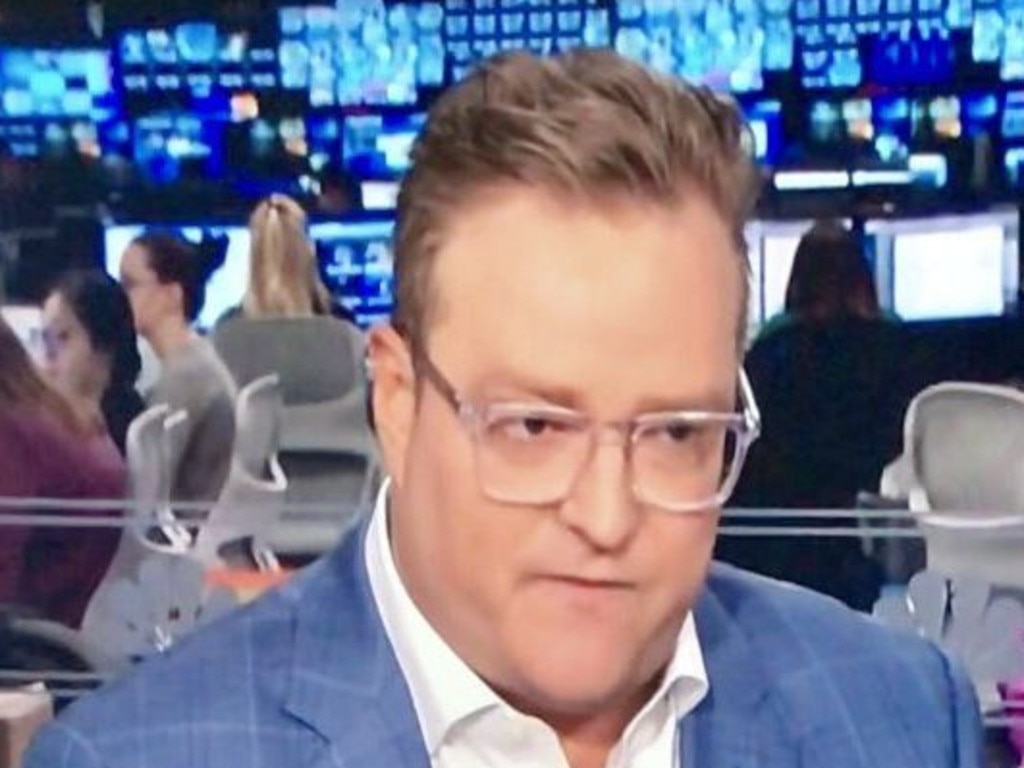
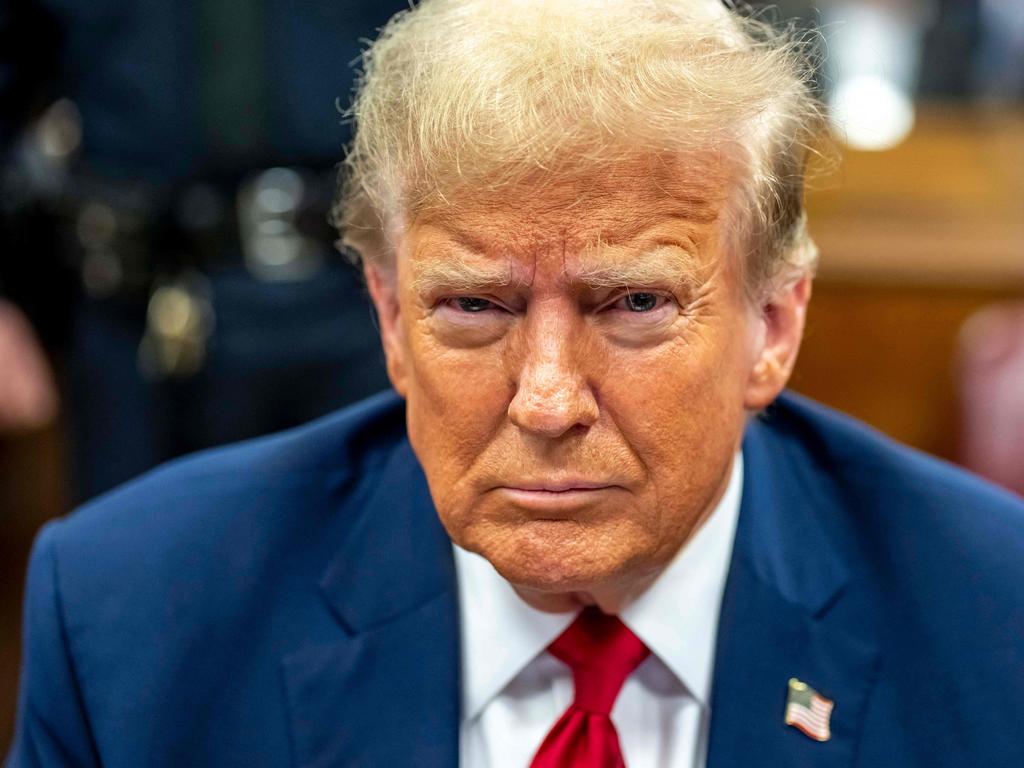




The trials of Donald Trump; the rhetorical wars between the Albanese government and Elon Musk, owner of X, formerly Twitter; the warnings from the heads of ASIO and the Australian Federal Police over the security dangers of social media and the magnifying dangers of artificial intelligence; the Anzac Day marches; the wildly anti-Semitic pro-Palestinian violence at American universities; and even the terror arrests in southwest Sydney – all come down to one central issue.